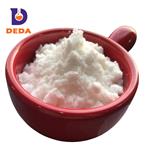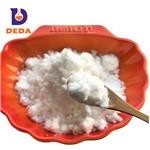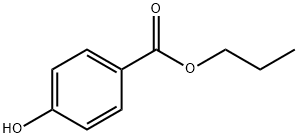Propylparaben: A Common Antimicrobial and Preservative Chemical Found in Personal Care Products and Food
Dec 20,2023
General Description
Propylparaben is a member of the paraben family, known for its antimicrobial and preservative properties. It inhibits the growth of microorganisms, preventing spoilage and contamination in various consumer products. It is widely used in cosmetics, personal care items, pharmaceuticals, and food products. Studies have shown its presence in leave-on and rinse-off products, with concentrations ranging from 0.01 to 0.32%. Propylparaben undergoes metabolic transformations in the body and is excreted primarily in urine. After oral consumption, it is rapidly absorbed and eliminated within approximately 3 hours. The majority of orally administered Propylparaben is excreted as non-specific metabolites. Overall, continued research and regulatory oversight are necessary to ensure consumer safety regarding cumulative exposure and potential health implications.

Figure 1. Propylparaben
Antimicrobial and Preservative Properties
Propylparaben is a specific member of the paraben family, which are chemicals composed of alkyl-esters of p-hydroxybenzoic acid. It possesses certain properties that make it useful in various consumer products. One of the key properties of propylparaben is its antimicrobial activity. It has the ability to inhibit the growth of microorganisms, such as bacteria, fungi, and yeast. This property is particularly valuable in preventing spoilage and contamination in perishable goods, extending their shelf lives, and maintaining product quality. Additionally, propylparaben exhibits preservative properties. It helps to prevent the degradation of products caused by exposure to light, heat, or air, thereby preserving their efficacy and stability over time. By inhibiting the growth of microorganisms, it also reduces the risk of potential infections associated with the use of products. Due to its effective antimicrobial and preservative properties, propylparaben is commonly used in a wide range of consumer products, including cosmetics, personal care items, pharmaceuticals, and food products. 1
Widespread Use of Propylparaben in Personal Care Products
Propylparaben is commonly used in personal care products across global markets, as evidenced by various studies. Research conducted in Europe found that 99% of leave-on products and 77% of rinse-off products, including shampoos, gels, cleansers, lotions, sunscreens, and cosmetics, contained parabens, with Propylparaben present in 38% of the products at concentration levels ranging from 0.01 to 0.32%. Similarly, a study in the USA revealed that 40% of the 170 personal care products tested contained Propylparaben, particularly in leave-on and baby care products. The highest mean concentrations of Propylparaben were found in baby sunscreen, sunscreen, skin lotion, skin cleanser, face cream, and hair conditioner. Furthermore, in China, 75% of the personal care products tested contained Propylparaben, with high concentrations detected in face cream and body lotion. These findings highlight the widespread use of propylparaben in a variety of personal care products, including those designed for adults and babies. The presence of Propylparaben in such products underscores its significance as a preservative and antimicrobial agent to extend shelf life and maintain product safety and quality. However, the concentrations detected also raise potential concerns about cumulative exposure and health implications, warranting continued research and regulatory oversight to ensure consumer safety. 2
Biological Processes
Propylparaben enters the body through various exposures, including food, cosmetics, personal care products, and handling of consumer goods. Once inside the body, it undergoes metabolic transformations primarily in the plasma and liver, mediated by enzymes. Propylparaben can be directly conjugated, leading to the formation of specific metabolites. Glucuronosyltransferases in the liver can convert Propylparaben into Propylparaben glucuronide, a major water-soluble metabolite that is excreted in urine. Sulfotransferases, also present in the liver, can transform Propylparaben into Propylparaben sulfate, which is also excreted in urine. Additionally, Propylparaben can be hydrolyzed to form PHBA, a non-specific metabolite that can be further glucuronidated or transformed into PHHA, another non-specific metabolite. When Propylparaben is orally consumed, it is rapidly absorbed and eliminated, with a half-life of approximately 3 hours. Studies suggest that about 75% of orally administered Propylparaben is excreted as non-specific metabolites, while approximately 22% is excreted as a Propylparaben conjugate. After 72 hours, neither Propylparaben nor its metabolites are detectable in urine, indicating efficient metabolism and excretion. 3
Reference
1. Matwiejczuk N, Galicka A, Brzóska MM. Review of the safety of application of cosmetic products containing parabens. J Appl Toxicol. 2020;40(1):176–210.
2. Guo Y, Wang L, Kannan K. Phthalates and parabens in personal care products from China: concentrations and human exposure. Arch Environ Contam Toxicol. 2014;66(1):113–119.
3. Vandenberg LN, Bugos J. Assessing the Public Health Implications of the Food Preservative Propylparaben: Has This Chemical Been Safely Used for Decades. Curr Environ Health Rep. 2021;8(1):54-70.
- Related articles
- Related Qustion
- Propylparaben: A Comprehensive Overview for Chemical Professionals Apr 28, 2024
The widespread application of Propylparaben as a preservative in the cosmetics, pharmaceutical, and food industries has attracted great attention.
- Propylparaben in Skincare Nov 29, 2022
The passage talks about how Propylparaben works in skincare.
Glucose is a polar molecule due to its multiple hydroxyl groups, which create polar bonds. The polarity of glucose plays a essential role in biological processes such as energy metabolism.....
Dec 20,2023Biochemical EngineeringD-Camphor: Versatile compound used in pharmaceuticals, fragrances, and plastics; handle with care due to potential toxicity and irritant properties.....
Dec 20,2023Flavors and fragrancesPropylparaben
94-13-3You may like
- Crystal Structure of Manganese selenide
May 23, 2024
- What is the Crystal Structure of Titanium boride?
May 23, 2024
- What is the crystal structure of beryllium hexaboride?
May 23, 2024
- Propylparaben
-

- $0.00 / 1kg
- 2024-05-23
- CAS:94-13-3
- Min. Order: 1kg
- Purity: 0.99
- Supply Ability: 500000kg
- Propylparaben
-

- $10.00 / 1kg
- 2024-05-23
- CAS:94-13-3
- Min. Order: 1kg
- Purity: 99.5
- Supply Ability: 10 ton per month
- Propylparaben
-

- $10.00 / 1kg
- 2024-05-23
- CAS:94-13-3
- Min. Order: 1kg
- Purity: 99.5
- Supply Ability: 10 ton per month




